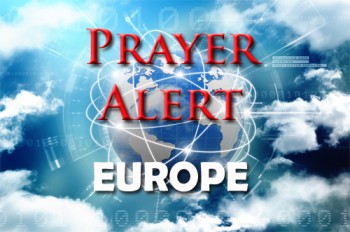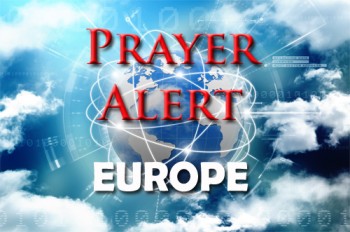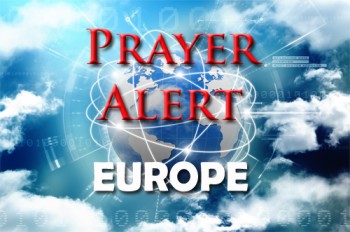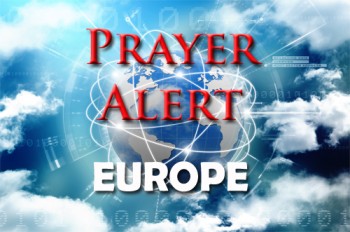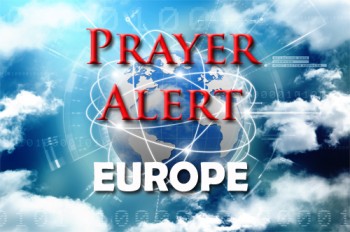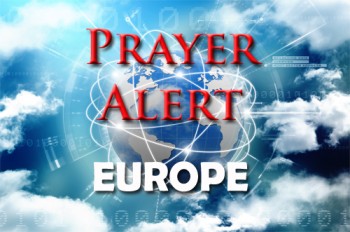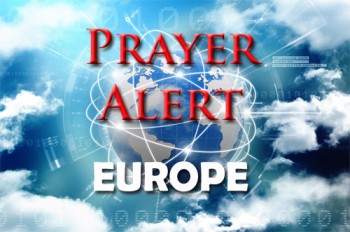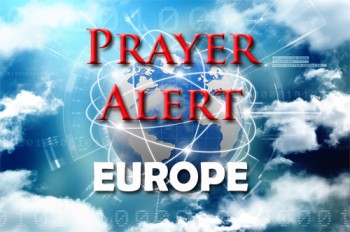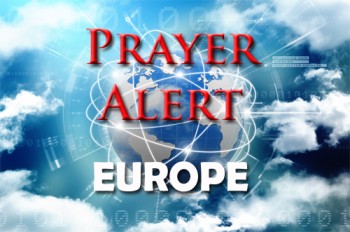Displaying items by tag: Europe
France: Covid deadlines and demos
French healthcare workers now face suspension if they are not vaccinated against Covid-19. The demand affects all medical professionals and those working with vulnerable people (including nursing homes' non-medical staff). 86% of healthcare workers are fully inoculated, suggesting many are risking sanctions. Also a phased roll-out of a Covid pass has been introduced - attesting its holder had either been vaccinated, tested negative or recently recovered from Covid - to visit cultural and leisure venues, bars, restaurants, large events or use long-distance public transport. On 14 September 'Infringement of freedom' protests were held in Paris over these rules. Over 9,000 Covid-related hospitalisations did not deter protesters, whilst others showed up to vent their overall frustration with the tenure of President Emmanuel Macron. Over last weekend, in Paris alone, three different Covid-related demonstrations took place. See
Netherlands: Pre COP26 dialogue on adaptation
On the heels of last month’s warning from the UN climate science panel that extreme weather and rising seas are hitting faster than expected, over 50 ministers, heads of climate organisations and development banks met in Rotterdam this week and called for November’s COP26 climate talks to treat adaptation as ‘urgent’. They want more money and political will to help people adapt to the new reality. In a communique, they said adaptation – which ranges from building higher flood defences to growing more drought-tolerant crops and relocating coastal communities – had not benefited from the same attention, resources or level of action as efforts to cut planet-heating emissions. That has left people worldwide ‘exposed to a climate emergency unfolding faster than predicted’, they said.
Russia: Kremlin stops 'Smart Voting’
Political leader, Aleksei Navalny, is documenting corruption and ostentatious spending by government officials and launched ‘Smart Voting’ to loosen the chokehold the Kremlin-allied United Russia party has on elected legislatures nationwide. Authorities have stepped up a crackdown on anything connected to Smart Voting in the runup to September’s elections to the lower house of parliament - crucial for cementing United Russia’s political life and key to constitutional manoeuvering ahead of 2024’s presidential election. Navalny used the Smart Voting tactic to secure victories for hundreds of opposition candidates in local elections in 2018, 2019 and 2020. On August 24th Smart Voting went high-tech with a downloadable app that identifies in most races the candidate most likely to defeat their ruling party rival, regardless of party affiliation or ideology, and urges voters to cast their votes for that candidate. Navalny is now experiencing police intimidation, attempts to block the Smart Voting website and fake Smart Voting sites flooding the Internet.
Romania: Catching sex traffickers
Praise God that in Romania the International Justice Mission (IJM) workers have seen many answers to their prayers. Specifically - IJM Romania has been receiving an increase in referrals from law enforcement. Training conducted by IJM has been a great success with positive feedback from police and prosecutor participants. There are continued strong and engaged partnerships between IJM Romania and the Prime Minister's Office, Ministry of Justice, police, prosecution offices and the Anti-Trafficking Agency. IJM Romania and the Orthodox Church have seen good progress in their collaboration. Please continue to pray for their work with churches, including engagement with the Evangelical and Catholic Churches and for more fruit to come from partnerships with public justice agencies.
Italy: overcrowded boat with 539 migrants
The Italian coastguard rescued 539 migrants crammed onto a decrepit fishing boat off the tiny southern Italian island of Lampedusa. A Médecins Sans Frontières nurse said the passengers included three women and several unaccompanied minors in the dangerously packed boat which would have travelled about 300 kilometres from the Libyan coast to Lampedusa. At least twenty of the migrants who were examined by medical personnel had scars from torture. ‘They had burn wounds, firearms wounds. They were very worn down, some were dehydrated.’ Local reports suggest some of them had been falsely imprisoned in Libya. Italian prosecutors have opened an inquiry into what may have happened. The nurse said she didn’t know how long the fishing boat had been at sea, but they had spent weeks or even months in Libya awaiting passage in traffickers’ boats in hopes of reaching Europe.
Belarus: criminal charges for church's outdoor worship?
At a meeting in Parliament and in two letters, officials warned New Life Pentecostal Church that continuing to meet for worship in the car park of their seized church in Minsk could lead to administrative or criminal prosecution (maximum punishment four years' imprisonment). The church vowed to continue its worship. ‘The authorities may initiate criminal charges,’ Pastor Vyacheslav Goncharenko said. ‘This is possible, given that they have gone as far as throwing us out of the building without compensation and imposing debts.’ City and state religious affairs officials refused to discuss the threats. The church has held services outdoors every Sunday - in snow, rain, or hot sunshine - since officials evicted the congregation from its building on 17 February. Pray for God continually to reassure Pastor Goncharenko of His presence with him as he stands for freedom of religion in Minsk.
Luhansk: Christian books officially labelled extremist material
The government of the Luhansk People’s Republic, which declared itself independent from Ukraine in 2014, has added four Christian books to an official list of banned extremist materials. The books were seized from the Council of Baptist Churches in the city of Sverdlovsk and in July they were added to the list by the justice ministry ‘in order to secure the safety of the Republic’. There are 18 Christian works on the list of extremist materials, including a Russian version of the Gospel of John, a Billy Graham book, and a book by C H Spurgeon. Catholics have been denied a priest and the possibility to receive communion. An Orthodox Church of Ukraine chapel has been closed, and its bishop denied entry. Security forces also raid Protestant congregations and interrogate church leaders at police stations. We can ask God to soften the hearts of the authorities in Luhansk.
Ireland: lifting Covid-19 restrictions ‘as quickly as possible’
Minister for health Stephen Donnelly said that the government will continue to lift Covid-19 restrictions ‘as quickly as possible’. There would still be public health advice for situations where infection rates are higher. When asked if he thought that all restrictions on indoor capacity limits would be lifted before Christmas, he said, ‘Yes, I do. The road to freedom lies ahead, but things may still get worse before they get better. What we want to do is to provide real certainty for people. It’s been a brutal year and a half’, he added. The government is currently working on a roadmap on the lifting of all restrictions, which will be published next week.
France: new wildfires - thousands evacuated
Strong winds and hot weather are making it difficult to quell two fires in Aude and Vaucluse, causing the evacuation of 130 people. 300+ hectares have been burnt, in new breakouts injuring 132 firefighters. Forest fires covering 210 hectares have hit the south of France as a 7,000-hectare blaze near Saint-Tropez continues. People have died and others are missing in the blazes. On 17 August a fire restarted overnight in Beaumes-de-Venise, fanned by strong winds. Over 1,000 firefighters tackled a blaze in Var, where a man died in his house. A woman is reported missing after calling her family while surrounded by fire. Blazes have erupted in Bizanet and Narbonne, with 70-80kph wind gusts threatening more outbreaks.
Spain: Europe's vegetable garden - poverty and plastic
Andalusia in Spain attracts foreigners flocking to beautiful beaches, and migrants flocking to harvest fruit and vegetables. While holidaymakers stay at expensive apartments, hundreds of fruit-pickers live in poverty-stricken, plastic shantytowns. ‘People come and say they are going to save us,’ says Ayoub. ‘They take our picture, but nothing changes. Nothing is ever going to change.’ 600 immigrants live in hovels, dust alleys are strewn with garbage, a dried-up riverbed is the toilet, and electricity is stolen from overhead lines. Ayoub works in hot greenhouses sprawling for miles, unseen by tourists enjoying long lunches, blissfully unaware of the harsh reality behind their salads.
